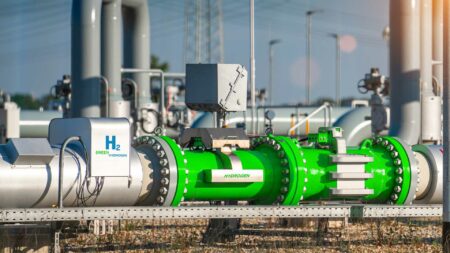The United States Secretary of Energy, Jennifer Granholm, announced on Friday that the U.S. could export hydrogen to Japan as part of a broader bilateral energy cooperation effort, which includes wind and nuclear power.
The announcement comes as Granholm attends the G-7 ministerial meeting on energy and climate, where she emphasizes the need for global cooperation to speed up efforts to curb global warming.
Hydrogen, a next-generation energy source, is crucial in achieving global decarbonization as it produces only water as an emission when used as fuel. However, transporting it in liquefied form poses challenges, including the need to keep it at very low temperatures. Despite these challenges, Granholm expresses optimism that hydrogen could be the missing piece of the puzzle for resource-poor Asian nations like Japan, which are striving to reduce greenhouse gas emissions.
The U.S. is expected to select nationwide hydrogen hubs by this fall, and Granholm mentions that exporting it to Japan is “possible” and among the proposals being evaluated. Japan’s delivery technology could be crucial in learning the challenges involved with hydrogen transportation, which could help the U.S. establish safe and efficient methods to transport it.
The G-7 meeting will focus on accelerating decarbonization, including when to phase out coal-fired plants. Granholm emphasized the importance of moving quickly and cited extreme weather events as a consequence of not moving fast enough.
Besides hydrogen, the U.S. also seeks to cooperate on developing geothermal and offshore wind power, acknowledging Japan’s great potential for these renewable energies. Granholm expressed hope for promoting technological cooperation in developing next-generation advanced reactors with Japan, especially after the Fukushima nuclear crisis in 2011.
The Secretary emphasized the need for global cooperation and stated that nuclear if done right, is a zero-carbon-emitting baseload power. The U.S. intends to provide its nuclear expertise to countries that aspire to use the energy source.
In conclusion, the potential collaboration between the U.S. and Japan on hydrogen and other next-generation energy sources could bring us closer to achieving global decarbonization goals. However, challenges involving transportation and cost still need to be addressed. The G-7 ministerial meeting on energy and climate, where global leaders discuss the challenges and opportunities in achieving a low-carbon future, could play a significant role in addressing these challenges.








